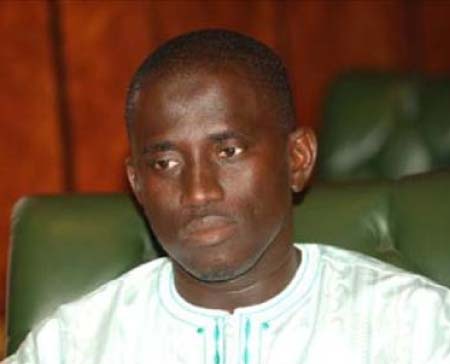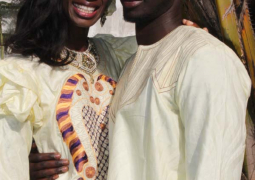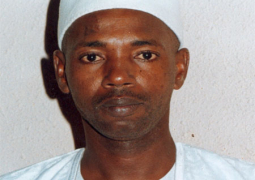
Gaye made this statement during cross-examination of the VP’s chief of protocol, Musa Sinyan, before Justice Amadi of the Special Criminal Court in Banjul.
“I apologised to VP and explained that I was in a meeting when the protocol called to announce the departure,” counsel quoted from Sabally’s statement.
“The accused said he apologised to the VP,” counsel told the court.
“I don’t know,” said the witness.
“It is in evidence that there were two of you, you and PW4 Ndey Haddy Jeng,” counsel continued.
The witness said he did not understand the statement.
At that juncture, Gaye told the witness that they were not there for playing games.
“The flight that took you to South Africa - was it a scheduled commercial flight?”
“No,” said the witness.
“What flight was it?”
“It was a private flight,” the witness replied.
“Have you ever heard of people missing their flights?”
“Yes.”
“On the departure day, did the honorary consul Lette ask you whether you were leaving at 8:00?”
“I did not talk to Mr Lette.”
“On page 4 to 5 of the statement made by the accused, the accused said that he (accused) and Mr Lette were still not able to talk to Musa Sinyan, and then Lette was able to contact Musa Sinyan and Musa Sinyan informed him (Lette) that VP was ready to leave for the airport immediately to come back to Banjul. Do you agree with that?”
“No.”
“I apologized to VP and explained that I was in a meeting when the protocol called to announce the departure,” counsel quoted from Sabally’s statement.
“The accused said he apologised to the VP”
“I don’t know.”
“It is in evidence that there were two of you, you and PW4 Ndey Haddy Jeng.”
The witness said he did not understand the statement.
At that juncture, Gaye told the witness that they were not there for jokes.
He also said the DPP should stop interrupting him all the time.
“You and PW4 were the only two protocols on the ground in South Africa.”
“Yes,” said the witness.
“Was it you who called the accused to inform him about the departure time?”
“No, it was not me.”
“You are not in a position to dispute that a call to that effect was made by a protocol.”
“I don’t know who made the call, if at all a call was made at the said time.”
“Where you in the aircraft, when the accused arrived and greeted everybody?”
“Yes, I was there.”
“The atmosphere was cordial when the accused arrived.”
DPP objected on the grounds that it was an opinion.
However, Justice Amadi overruled saying it was a matter of observation.
“Yes, it was cordial,” the witness told the court.
“In your evidence-in-chief, you said the flight was delayed for 1 hour; that instead of leaving at 8pm, you left at 9pm.”
“Yes.”
“You made a statement at the NIA and, in that statement, did you say that the accused delayed the flight for one hour?”
“I said 45 minutes in my statement.”
“Where did the 15 extra minutes come from?”
Justice Amadi intervened and said that they were not there to calculate time and ended up on something that was not relevant.
However, he allowed the question, and asked the witness to answer.
“All I know is that the accused was late for about 45 minutes.”
“Your colleague, Ndey Haddy Jeng, said the accused was late for 15 minutes.”
“I still maintain that Sabally was late for about 45 minutes.”
“I put it to you that the accused was not late for about 45minutes.”
“I still maintain that the accused was late for about 45 minutes.”
“I put it to you that you were so negligent in South Africa, in your capacity as a protocol officer, that the accused reported you to your boss, Mr Jobarteh, on arrival in Banjul for your poor handling of delegates; which was why you came here to lie against the accused,” counsel went on.
“I did not receive any official report from Mr Jobarteh, and I strongly maintain that I am not telling lies against the accused.”
“As between you, the head of delegation, and the pilot, who among you was in control of the aircraft’s movement?”
“It’s the pilot.”
At the end of the cross-examination, DPP made an application for a particular witness testimony to be heard in chambers.
“I want to make an application for the witness to be heard in chambers for security reasons, because the witness is undercover and we don’t want him to be known. I am relying on CPC and section 24 subsection 2 of the 1997 constitution,” he said.
Defence counsel Gaye opposed the application.
He said no cogent or sufficient reason has been advanced as to why the next witness’s evidence should be held in camera.
They have been served with a list of witnesses that the prosecution wishes to call and, according to this list, the identities of the witnesses were revealed and there is no one in the list that is a security agent.
He urged the court to disallow the application.
Justice Amadi, in his ruling, disallowed the DPP’s application.
The case continues today.



